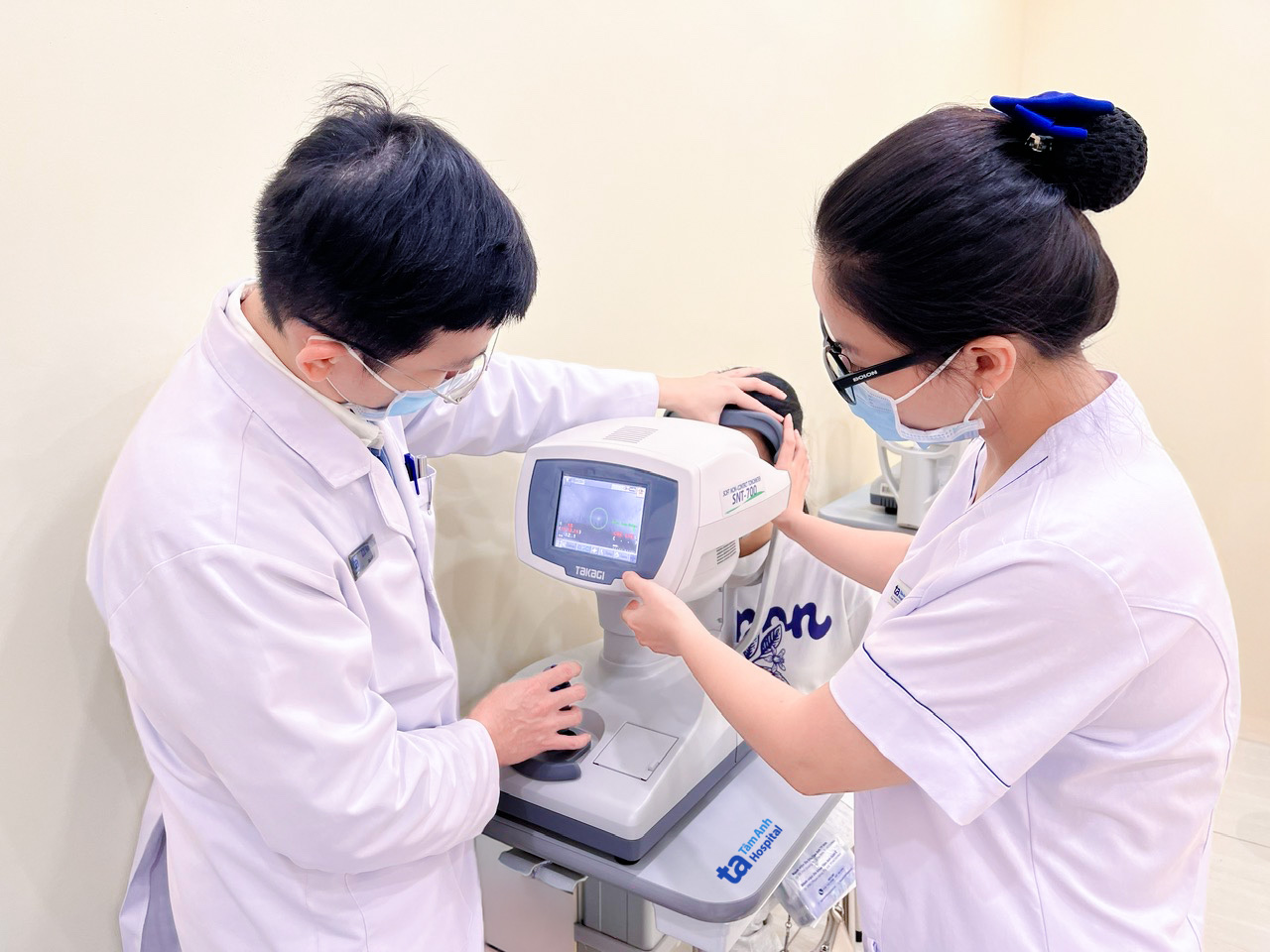Doctor Pham Huy Vu Tung, from the High-Tech Eye Center at Tam Anh General Hospital in TP HCM, reported a 70-year-old patient, Thao, presented with blurred vision, eye pain, discharge, and excessive tearing. A comprehensive eye exam revealed her right eye's intraocular pressure (IOP) was nearly 28 mmHg (normal is below 21 mmHg), while her left eye's IOP was stable at 18 mmHg.
Further testing, including a visual acuity assessment and fundus examination, confirmed Thao had glaucoma in her right eye. She admitted to using over-the-counter corticosteroid eye drops for about six months.
Doctor Tung explained that corticosteroids are potent anti-inflammatory drugs often prescribed for various eye conditions, including conjunctivitis, uveitis, keratitis, or post-eye surgery. Prolonged, unsupervised use can disrupt the eye's fluid drainage system, increasing IOP and potentially leading to glaucoma, a leading cause of irreversible vision loss.
 |
Doctor Tung (left) and a technician measure a patient's eye pressure. Illustrative photo: Tam Anh General Hospital |
Doctor Tung (left) and a technician measure a patient's eye pressure. Illustrative photo: Tam Anh General Hospital
Similarly, Thanh, 40, also developed glaucoma from misusing corticosteroid eye drops to relieve eye inflammation and itching for several months. Upon examination, she experienced significant eye irritation, itching, and persistent headaches. Her visual field showed signs of damage, and her IOP was almost double the normal level, exceeding 35 mmHg.
Doctor Tung diagnosed both cases as open-angle glaucoma and instructed them to immediately discontinue using corticosteroid eye drops.
Open-angle glaucoma, the most common form, occurs when the drainage angle between the cornea and iris remains open, but the drainage system malfunctions, leading to poor fluid outflow, increased IOP, and gradual damage to the optic nerve. In contrast, angle-closure glaucoma progresses rapidly, causing acute pain. Treatment, including medication, laser procedures, or surgery, depends on the severity, cause, and type of glaucoma.
In mild or early-stage glaucoma, patients are typically prescribed eye drops or oral medications to reduce fluid production or improve drainage, thereby lowering IOP.
For Thao and Thanh, Doctor Tung prescribed Combigan eye drops to control their IOP, prevent further optic nerve damage, and preserve their vision. Both patients responded well to the medication, their IOP decreased, and their eye conditions stabilized.
Glaucoma often progresses silently without noticeable symptoms in the early stages, making it difficult to detect until vision loss, particularly in the peripheral vision, begins. Doctor Tung advises against using corticosteroid eye drops without a clear medical indication and recommends regular IOP checks for those who have used these medications. If you experience any unusual symptoms like blurred vision, eye pain, seeing halos around lights, or decreased vision, seek immediate medical attention for proper diagnosis and treatment.
Nhat Thanh
*Patient names have been changed.
| Readers can submit questions about eye diseases here for doctors to answer. |












